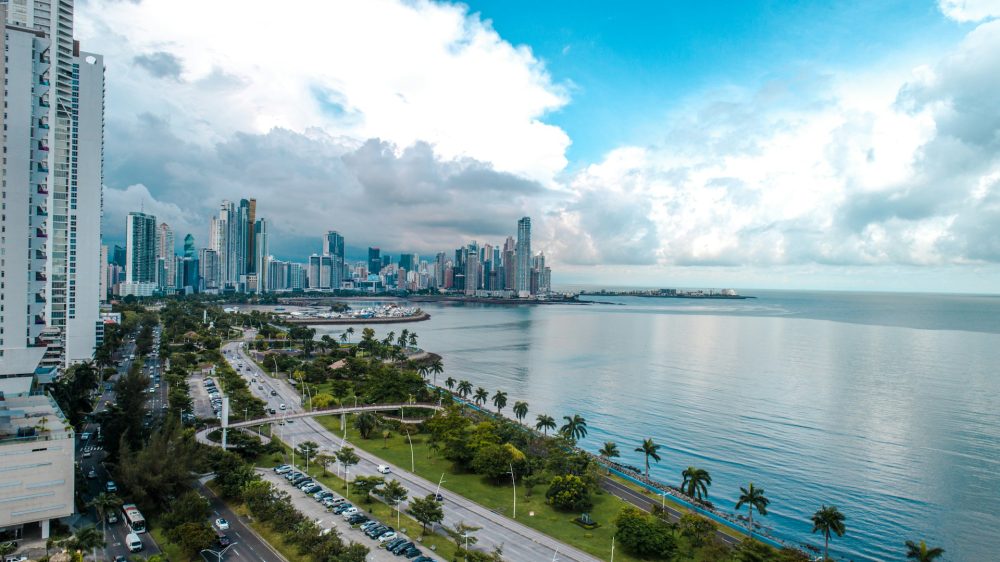Cannabis
Panama Begins Implementation of Medical Cannabis Program After Four-Year Delay
Four years after Panama approved medicinal cannabis use, its implementation is finally underway. Recent regulatory changes removed restrictive requirements, allowing any authorized doctor to prescribe it and companies to import products. Panama thus becomes Central America’s first country to grant formal licenses for medicinal cannabis, paving the way for future local production and controlled access.

Four years after the approval of the Law regulating the medicinal and therapeutic use of cannabis in Panama, its application is finally beginning to take effect. Although the regulations were approved in 2021, their implementation progressed slowly, and during this time patients did not have formal access to cannabis-based treatments.
The situation in Panama changed recently with the issuance of a decree that adjusted several points of the original regulations and allowed the licensing process to move forward. Among the most important modifications is the elimination of the requirement for mandatory courses for doctors and pharmacists, which means that now any authorized health professional can prescribe medicinal cannabis following the same rules that apply to other controlled medications.
Regulatory reforms enable prescriptions, product imports, and licensing, making Panama the first Central American nation to formally regulate medicinal cannabis under state supervision
The closed list of diseases for which it could be prescribed was also eliminated , leaving the decision to medical discretion, and the technical requirements were relaxed to allow companies to begin importing finished products while they adapt their facilities
Thanks to these changes, the Ministry of Health has already granted licenses to several companies to operate within the program, and some have also been authorized to import cannabis-based medicinal products. With this measure, Panama becomes the first country in Central America to grant formal permits for the handling of medicinal cannabis under structured state regulation.
The plan envisions that, in the first stage, companies can import oils, extracts, or formulations ready for dispensing in authorized pharmacies, while the processes for cultivating and processing cannabis within the country are underway. For this purpose, the initial importation of seeds and plants will be permitted under strict control, with the goal of starting local production within an estimated one to two years. The aim is that, in the medium term, the system can operate with raw materials cultivated, processed, and distributed internally under pharmaceutical standards
Despite the accumulated delays since the law’s approval, authorities in Panama assure that implementation has already entered an operational phase. However, the requirement for a medical prescription and the establishment of controls and monitoring remain in place. A specialized technical committee will be responsible for overseeing the program, promoting the training of healthcare personnel, and evaluating clinical results.
The implementation of medical cannabis in Panama represents a significant change for patients who need therapeutic alternatives for conditions such as chronic pain, refractory epilepsy, chemotherapy side effects, neurological disorders, and degenerative diseases. The challenge now will be to ensure that access is safe, regulated, and timely, preventing the informal market from once again occupying the space that regulation seeks to bring order to.
__
(Featured image by Luis Aleman via Unsplash)
DISCLAIMER: This article was written by a third party contributor and does not reflect the opinion of Born2Invest, its management, staff or its associates. Please review our disclaimer for more information.
This article may include forward-looking statements. These forward-looking statements generally are identified by the words “believe,” “project,” “estimate,” “become,” “plan,” “will,” and similar expressions. These forward-looking statements involve known and unknown risks as well as uncertainties, including those discussed in the following cautionary statements and elsewhere in this article and on this site. Although the Company may believe that its expectations are based on reasonable assumptions, the actual results that the Company may achieve may differ materially from any forward-looking statements, which reflect the opinions of the management of the Company only as of the date hereof. Additionally, please make sure to read these important disclosures.
First published in LR. A third-party contributor translated and adapted the article from the original. In case of discrepancy, the original will prevail.
Although we made reasonable efforts to provide accurate translations, some parts may be incorrect. Born2Invest assumes no responsibility for errors, omissions or ambiguities in the translations provided on this website. Any person or entity relying on translated content does so at their own risk. Born2Invest is not responsible for losses caused by such reliance on the accuracy or reliability of translated information. If you wish to report an error or inaccuracy in the translation, we encourage you to contact us.

-

 Africa4 days ago
Africa4 days agoAir Algérie Expands African Partnerships
-

 Crypto2 weeks ago
Crypto2 weeks agoEthereum Pushes AI Integration With ERC-8004 and Vision for Autonomous Agents
-

 Business6 days ago
Business6 days agoDow Jones Near Record Highs Amid Bullish Momentum and Bearish Long-Term Fears
-

 Business2 weeks ago
Business2 weeks agoDow Jones Breaks 50,000 as Bull Market Surges Amid Caution and Volatility

























